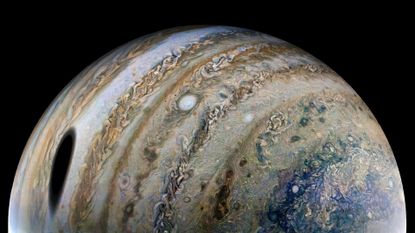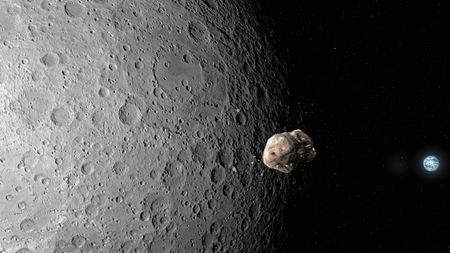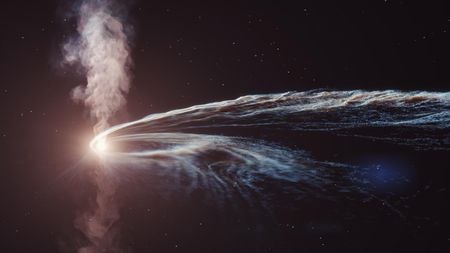Space news, features and articles
Space is a seemingly infinite world of wonder and discovery, filled with mysterious black holes, stunning solar flares, elusive exoplanets and countless cosmic oddities. Our team of expert science writers and editors are ready to hold a lens like that of the James Webb Space Telescope beyond Earth, keeping those on this planet up to date with the latest space news, articles and features.
Discover more about space
—Space photo of the week: Extraordinary images of our sublime universe
—Solar system quiz: How well do you know our cosmic neighborhood?
—Check out some jaw-dropping James Webb Space Telescope images
Latest about Space
-
-
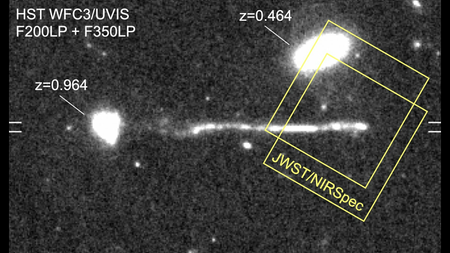
'Runaway' black hole detected by the James Webb telescope adds a strange new chapter to our universe's story
By David Blair Published -
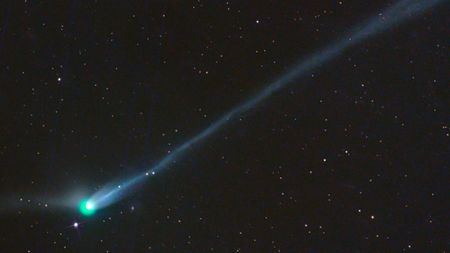
Newly visible, city-size 'green comet' will soon be ejected into interstellar space — just like 3I/ATLAS
By Harry Baker Published -
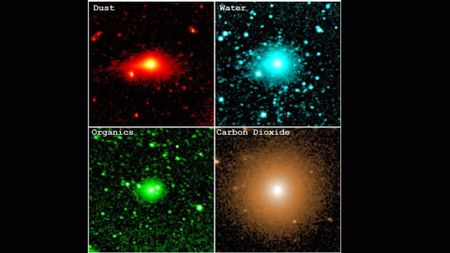
NASA telescope spots the building blocks for life spewing out of comet 3I/ATLAS
By Patrick Pester Published -
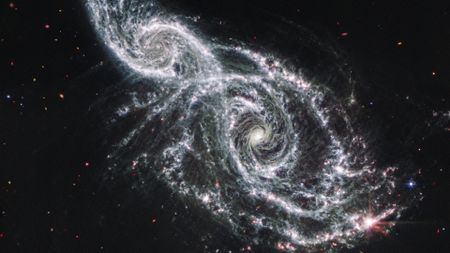
The earliest black holes in the universe may still be with us, surprising study claims
By Paul Sutter Published -
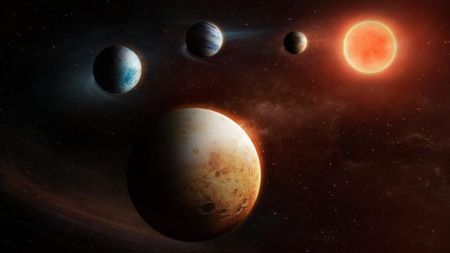
Strange rocky world found lurking on the edge of 'inside out' planetary system
By Skyler Ware Published -
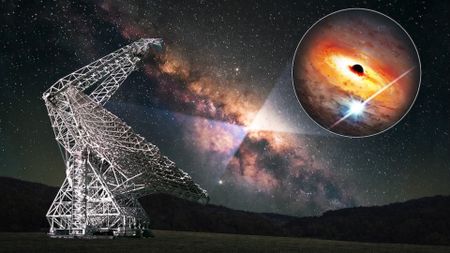
Radio signal discovered at the center of our galaxy could put Einstein's relativity to the test
By Elizabeth Howell Published -
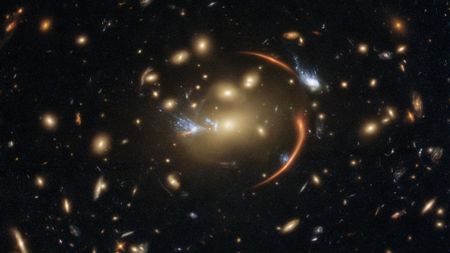
Our leading theory of dark matter may be wrong, huge new gravity study hints
By Paul Sutter Published
-
Explore Space
Astronomy
-
-

'Runaway' black hole detected by the James Webb telescope adds a strange new chapter to our universe's story
By David Blair Published -

Newly visible, city-size 'green comet' will soon be ejected into interstellar space — just like 3I/ATLAS
By Harry Baker Published -

NASA telescope spots the building blocks for life spewing out of comet 3I/ATLAS
By Patrick Pester Published -

The earliest black holes in the universe may still be with us, surprising study claims
By Paul Sutter Published -

Strange rocky world found lurking on the edge of 'inside out' planetary system
By Skyler Ware Published -

Radio signal discovered at the center of our galaxy could put Einstein's relativity to the test
By Elizabeth Howell Published -

Our leading theory of dark matter may be wrong, huge new gravity study hints
By Paul Sutter Published -
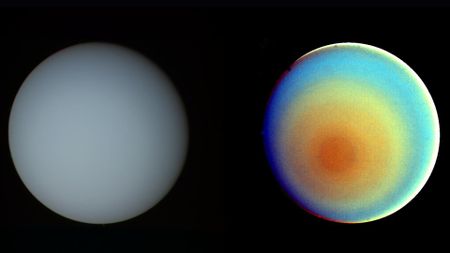
Something supercharged Uranus with radiation during Voyager flyby 40 years ago. Scientists now know what.
By Skyler Ware Published -
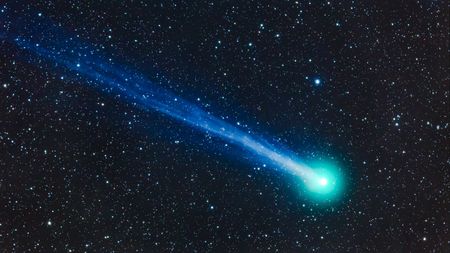
New 'sungrazing' comet could become visible to the naked eye during the day — if the sun doesn't destroy it
By Harry Baker Published
-
Extraterrestrial Life
-
-
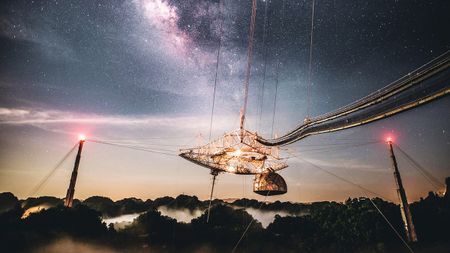
SETI scientists reveal 100 'signals of interest' from collapsed Arecibo Observatory
By Brandon Specktor Published -

Advanced alien civilizations could be communicating 'like fireflies' in plain sight, researchers suggest
By Harry Baker Published -
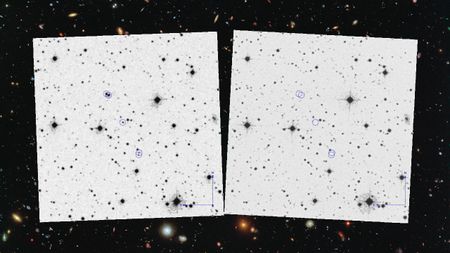
Scientists are debating a 70-year-old UFO mystery as new images come to light
By Sharmila Kuthunur Published -
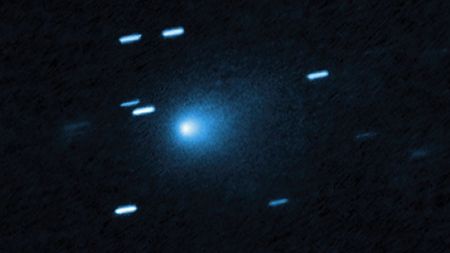
Is it aliens? Here's why that's the least important question about 3I/ATLAS.
By Laura Nicole Driessen Published -
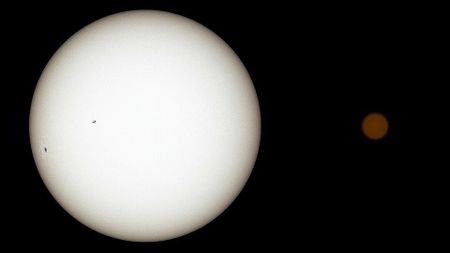
Chinese scientists hunt for alien radio signals in 'potentially habitable' TRAPPIST-1 system
By Mark Thompson Published -
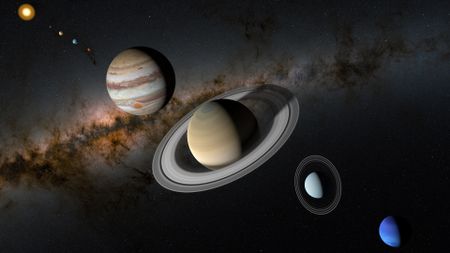
Where could alien life exist in our solar system?
By Damien Pine Published -

Camera trap in Chile detects strange lights blazing through the wilderness. Researchers are scrambling to explain them.
By María de los Ángeles Orfila Published -
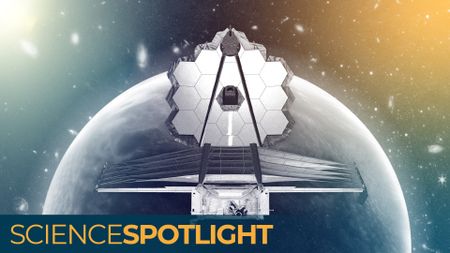
Will the James Webb telescope finally lead us to alien life?
By Brandon Specktor Published -

Cosmic rays could help support alien life on worlds outside the 'Goldilocks zone'
By Joanna Thompson Published
-
Space Exploration
-
-
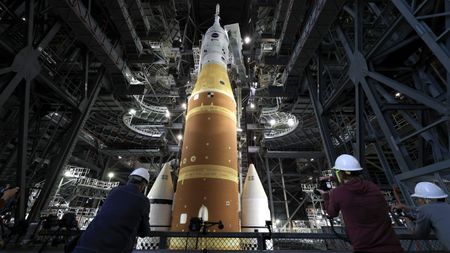
Hydrogen leak derails Artemis II wet rehearsal, pushing launch date back by weeks
By Patrick Pester Published -
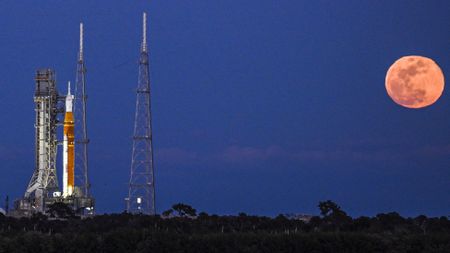
Artemis II simulated launch window opens tonight as NASA delays mission due to 'rare Arctic outbreak'
By Patrick Pester Published -
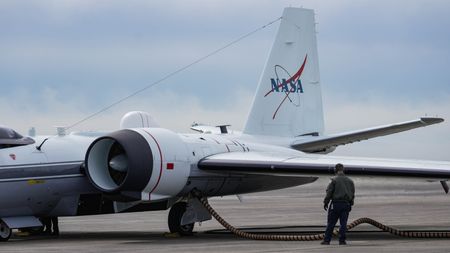
NASA jet crashes in flames on Texas runway — taking it out of the Artemis II mission
By Harry Baker Published -
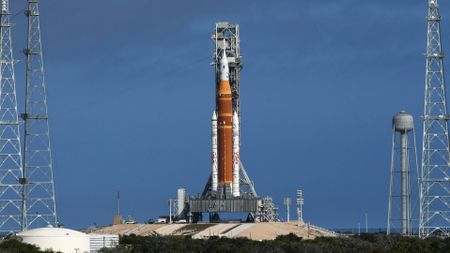
NASA is preparing for simulated launch of Artemis II mega moon rocket — and it could happen as early as Saturday
By Patrick Pester Published -
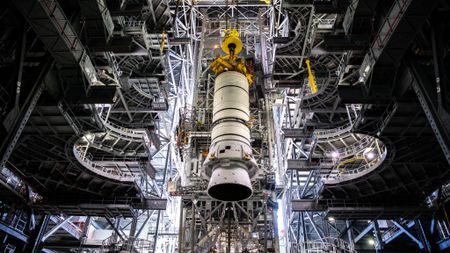
Watch NASA roll its historic Artemis II moon rocket to the launch pad this weekend
By Ben Turner Published -
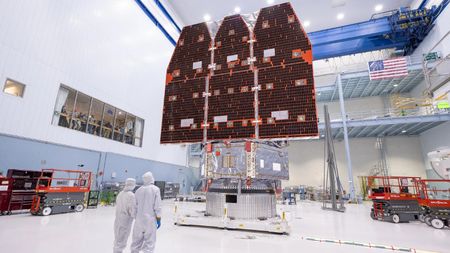
NASA's powerful new Roman Space Telescope is complete — and will soon begin mission to find 100,000 alien worlds
By Harry Baker Published -
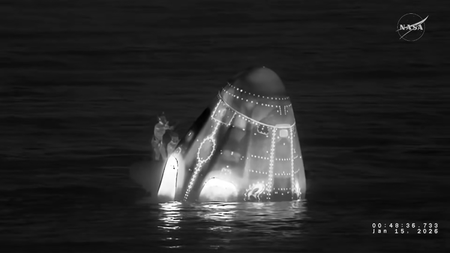
NASA astronauts back on Earth after unprecedented medical emergency on ISS
By Patrick Pester Published -
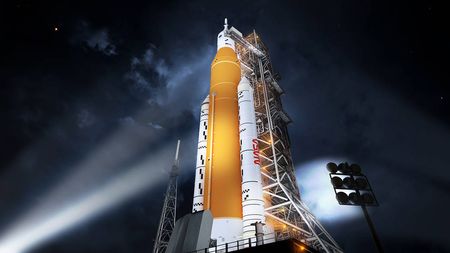
Artemis 2 mission update: Rollout imminent as NASA prepares first crewed Artemis mission to the moon
By Patrick Pester Published -
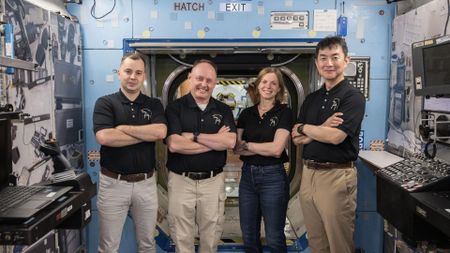
NASA announces unprecedented return of sick ISS astronaut and crew
By Sascha Pare Last updated
-
More about Space
-
-

Our leading theory of dark matter may be wrong, huge new gravity study hints
By Paul Sutter Published -

Something supercharged Uranus with radiation during Voyager flyby 40 years ago. Scientists now know what.
By Skyler Ware Published -

New 'sungrazing' comet could become visible to the naked eye during the day — if the sun doesn't destroy it
By Harry Baker Published
-
 Live Science Plus
Live Science Plus










